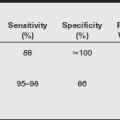
Embarking on a career in psychology promises more than just an understanding of human behavior—it offers a chance to make a tangible difference in people’s lives. Whether you’re drawn to the allure of unraveling complex emotional issues or the satisfaction of aiding personal growth and recovery, psychology can be a fulfilling field. However, excelling in this discipline involves much more than academic study. It requires a commitment to continuous learning, practical experience, and personal development.
In this guide, we explore the essential strategies that can help you not only navigate but thrive in the world of psychology. From leveraging your initial education to specializing in a niche that sparks your passion, each step you take is crucial. Let’s delve into the practical and strategic aspects of building a successful career in psychology, ensuring you are equipped to face the challenges and reap the rewards this field has to offer.
Starting Strong
Choosing the right psychology program is your first step toward a successful career in the field. It’s crucial to select a program that not only aligns with your career goals but also offers robust academic resources and hands-on learning opportunities. Make the most of your coursework by actively participating in class discussions and seeking feedback on your assignments. Practical application of theoretical knowledge is key, so engage in as many real-world scenarios as the curriculum allows.
Students interested in understanding human behavior and mental processes can greatly benefit from enrolling in bachelors in psychology programs, which offer a comprehensive foundation in the field. Psychology isn’t just about understanding theories; it’s about applying them effectively. Develop your critical thinking and analytical skills by challenging assumptions and exploring alternative solutions to problems. Effective communication is also vital. This means not only being able to express your thoughts clearly but also being an attentive listener. Ethics plays a crucial role in psychology. Familiarize yourself with the ethical standards of the profession and incorporate them into every aspect of your work.
Gaining Practical Experience
Practical experience is indispensable to truly excel in psychology. Look for internships and volunteer positions that offer a chance to work under the supervision of experienced professionals. Whether it’s in clinical settings, research facilities, or community centers, hands-on experience helps you apply your theoretical knowledge in real-life situations. These opportunities also allow you to observe how seasoned psychologists handle complex cases, giving you a better understanding of the practical challenges and ethical dilemmas in the field.
Networking and Professional Development
Joining professional associations such as the American Psychological Association (APA) can significantly enhance your career. These organizations offer networking opportunities, resources for continuing education, and platforms to share your research. Attend conferences and workshops to connect with peers and mentors who can provide career guidance and possibly job opportunities. Never underestimate the power of a strong professional network; it can open doors to opportunities that are not accessible through traditional job markets.
Specializing Your Expertise
After gaining some general experience in psychology, consider specializing in an area that interests you deeply, such as clinical psychology, forensic psychology, or sports psychology. Specializing allows you to focus your skills and knowledge on a specific sector, making you a sought-after expert in that niche. Think about the populations you are passionate about working with or the specific psychological issues you are interested in addressing. This specialization not only enhances your career prospects but also contributes to your personal fulfillment as you make a significant impact in your chosen area.
Advancing Your Education
Continuing your education beyond a bachelor’s degree can profoundly impact your career in psychology. A master’s degree opens up new professional avenues and specialization options that aren’t available with just a bachelor’s. Consider a Doctor of Psychology (PsyD) if you’re interested in clinical practice or a Doctor of Philosophy (PhD) if your focus is research and academia. These advanced degrees not only enhance your expertise but also significantly improve your earning potential and job stability. Think carefully about when to pursue further education—typically after gaining some real-world experience and a clear idea of your career direction.
Utilizing Technology and Modern Tools
As psychology evolves, so do the tools and technologies at its disposal. From virtual reality (VR) used in therapeutic settings to advanced software for data analysis, staying abreast of technological advancements is crucial. Familiarize yourself with the latest diagnostic tools and therapeutic technologies. Learning how to integrate these into your practice will not only improve your effectiveness as a psychologist but also position you as a forward-thinking professional in the field.
Publishing and Contributing to Research
Engaging in research and contributing to the scientific literature are key components of advancing the field of psychology. Whether you’re developing new theories or testing existing ones, research plays a critical role. Start by collaborating with peers or mentors who have experience in research to learn the ropes. Aim to publish your findings in reputable journals to build your credibility and academic portfolio. This not only enriches your knowledge but also enhances your reputation in the psychological community.
Balancing Personal and Professional Life
The nature of psychological work can be intensely emotional and mentally taxing. It’s essential to maintain a healthy work-life balance to prevent burnout. Implement strategies like setting clear boundaries between work and personal life, practicing self-care routines, and seeking professional help when needed. Remember, being well yourself is crucial to effectively helping others. This balance will sustain your long-term career and personal well-being.
Planning for the Future
The field of psychology offers diverse career paths. From clinical settings to corporate environments, the opportunities are vast. Assess your personal interests and career aspirations regularly to align your professional development efforts accordingly. Stay flexible and open to new opportunities that may arise with advancements in the field and societal changes. Keep an eye on emerging areas like neuropsychology or community psychology, which might offer new career opportunities.
Conclusion
Excelling in the field of psychology requires a blend of solid academic foundation, hands-on experience, and continuous professional development. By advancing your education, embracing technology, contributing to research, and maintaining a healthy work-life balance, you can enhance your skills and opportunities in this dynamic field. Always be prepared to adapt to changes and new information. With dedication and strategic planning, you can achieve not only professional success but also personal fulfillment as a psychologist, making a lasting impact on the lives of individuals and the broader community.




